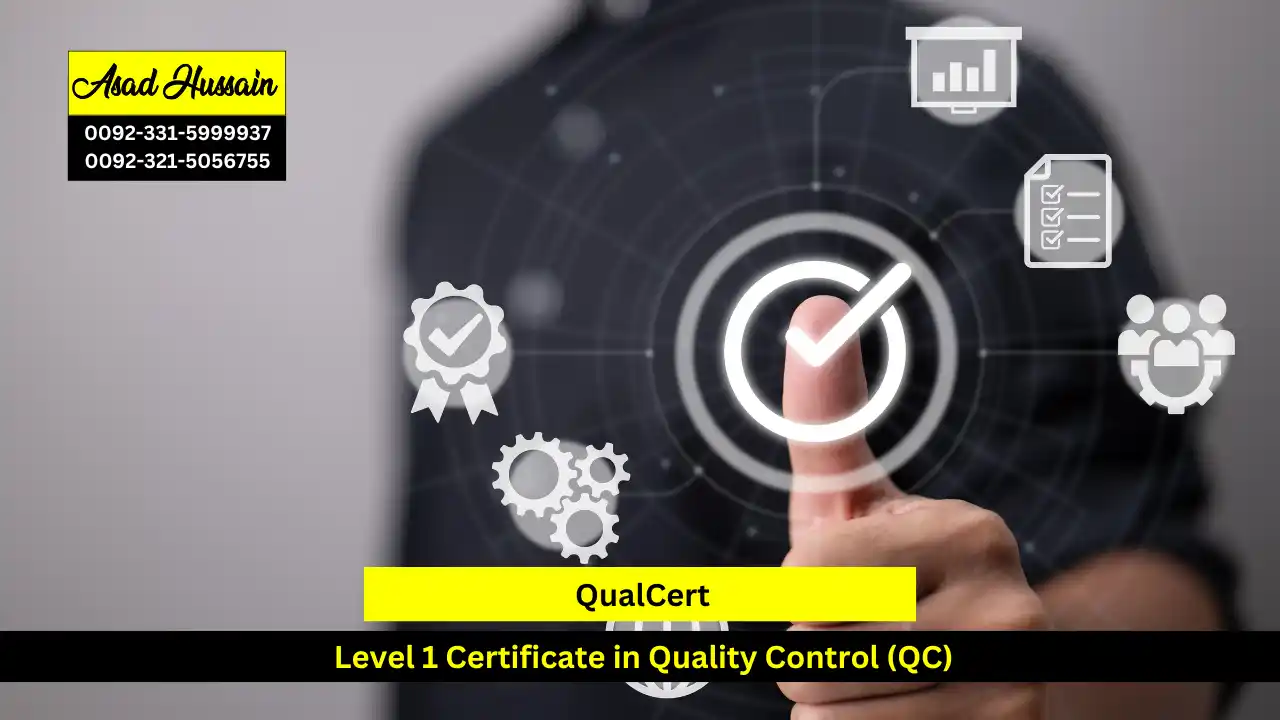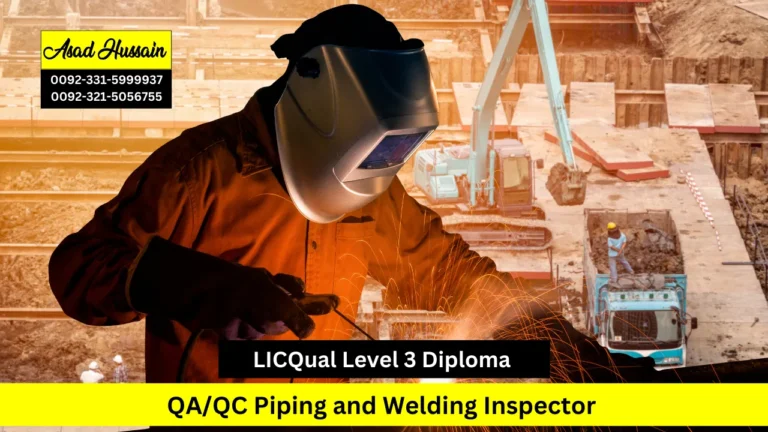Quality control (QC) is a cornerstone of modern industry, ensuring products and services meet rigorous standards before reaching consumers. The Level 1 Certificate in Quality Control offers an introductory pathway into this critical field, equipping individuals with foundational knowledge and skills essential for maintaining and enhancing product quality. This blog post delves into what the Level 1 Certificate in QC entails, its benefits, and why it’s valuable in today’s competitive marketplace.
The Level 1 Certificate in Quality Control is designed to provide participants with a solid understanding of the principles and practices of quality control. This entry-level certification introduces learners to the fundamental concepts of QC, including inspection techniques, quality assurance processes, and the importance of adherence to standards and specifications. Participants gain insights into identifying defects, conducting basic quality tests, and contributing to the overall quality improvement process within their organizations.
The Level 1 Certificate in Quality Control provides a solid foundation for individuals interested in starting a career in quality assurance and control. By acquiring essential skills and knowledge in QC practices, participants are well-prepared to contribute effectively to ensuring product quality and customer satisfaction. Whether you are beginning your journey in quality management or seeking to enhance your professional credentials, this certification offers valuable insights and practical skills that are highly relevant in today’s quality-driven market environment.
Program Highlights
Mandatory Units
- Module 1: Introduction to Quality Control.
- Module 2: Basic Quality Concepts.
- Module 3: Quality Control Tools and Techniques.
- Module 4: Quality Standards and Regulations.
- Module 5: Inspection and Testing Methods.
- Module 6: Documentation and Reporting.
- Module 7: Quality and Safety.
- Module 8: Quality Control in Practice.
- Module 9: Quality Control Skills Development.
- Module 10: Final Assessment and Certification.
- To ensure that participants can effectively engage with and benefit from the Level 1 Certificate in Quality Control (QC) course, we have established the following entry requirements:
- Educational Background: While there may not be strict educational prerequisites, participants should generally have a high school diploma or equivalent educational qualifications. This ensures that individuals have basic literacy and numeracy skills.
- Language Proficiency: Proficiency in the language of instruction (usually English) is essential to comprehend course materials, participate in discussions, and complete written assignments.
- Age Requirement: Participants must be at least 18 years of age to enroll in this course.
- No Previous QC Experience Required: This course is designed to accommodate both beginners and professionals seeking to refresh their knowledge. No prior experience in quality control is necessary.
Introduction to Quality Control
- Understanding Quality Control: Gain a foundational understanding of the principles, objectives, and importance of quality control in various industries.
- Role of Quality Control: Learn about the role of quality control in ensuring product reliability, consistency, and customer satisfaction.
- History and Evolution: Explore the historical development and evolution of quality control practices and standards.
Basic Quality Concepts
- Quality Basics: Understand fundamental concepts such as quality assurance, quality management systems, and total quality management.
- Quality Metrics: Learn to measure and assess product quality using basic quality metrics and indicators.
- Quality Improvement: Gain insights into continuous improvement techniques to enhance product quality and operational efficiency.
Quality Control Tools and Techniques
- Tools Overview: Familiarize yourself with essential quality control tools, such as checklists, flowcharts, histograms, and Pareto charts.
- Statistical Techniques: Learn basic statistical methods for analyzing quality data and making informed decisions.
- Problem-Solving Skills: Develop skills in identifying, analyzing, and solving quality-related issues using appropriate tools and techniques.
Quality Standards and Regulations
- Understanding Standards: Gain knowledge of industry-specific quality standards, regulations, and certifications.
- Compliance Requirements: Understand the importance of adhering to quality standards and regulations to ensure product safety and reliability.
- Certification Processes: Learn about the processes involved in obtaining and maintaining quality certifications.
Inspection and Testing Methods
- Inspection Techniques: Explore various methods and techniques used in product inspection to identify defects and deviations from quality standards.
- Testing Procedures: Understand the principles and procedures of quality testing, including reliability testing, performance testing, and destructive testing.
- Quality Assurance Checks: Learn how to conduct thorough quality assurance checks throughout the production process.
Documentation and Reporting
- Documentation Practices: Develop skills in documenting quality control activities, including recording inspections, test results, and compliance findings.
- Report Writing: Learn to prepare clear and concise quality control reports for internal stakeholders and regulatory bodies.
- Traceability and Accountability: Understand the importance of traceability in maintaining product quality and accountability in quality control processes.
Quality and Safety
- Safety Standards: Gain an understanding of the relationship between quality control and safety standards in ensuring workplace safety.
- Risk Management: Learn to identify potential risks related to product quality and safety and implement risk mitigation strategies.
- Health and Environment: Understand the impact of quality control practices on employee health, environmental sustainability, and community well-being.
Quality Control in Practice
- Implementation Strategies: Learn how to implement effective quality control practices in different organizational contexts.
- Case Studies: Analyze real-world case studies to understand successful implementation of quality control initiatives.
- Continuous Improvement: Explore strategies for fostering a culture of continuous improvement in quality control processes.
Quality Control Skills Development
- Skills Enhancement: Develop practical skills essential for performing quality control tasks, including attention to detail, problem-solving, and communication.
- Training and Development: Understand the importance of ongoing training and skills development in maintaining high standards of quality control.
- Professional Growth: Identify opportunities for personal and professional growth in the field of quality control.
Final Assessment and Certification
- Assessment Preparation: Prepare for the final assessment by reviewing key concepts and applying learned skills.
- Certification: Obtain the Level 1 Certificate in Quality Control upon successful completion of the final assessment, demonstrating proficiency in foundational quality control practices.
The Level 1 Certificate in Quality Control is designed for individuals who are eager to enter the field of quality assurance and control or enhance their foundational skills in this area. This course is ideal for recent graduates looking to kickstart their careers in industries where quality management is critical, such as manufacturing, healthcare, construction, and automotive sectors. It also suits entry-level professionals who are currently working in quality-related roles and seek formal training and certification. Additionally, employees who wish to improve their understanding of quality control practices and contribute more effectively to organizational quality initiatives will find this course beneficial. Whether you are aiming to start a new career path or advance within your current role, the Level 1 Certificate in Quality Control provides the essential knowledge and skills needed to ensure product reliability, compliance with standards, and customer satisfaction.







